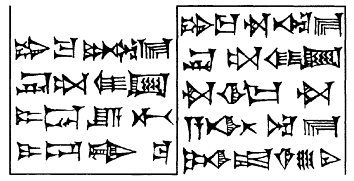Almost 4,000 years ago, King Hammurabi of Babylon, Mesopotamia, laid out one of the first sets of laws.
Hammurabi’s Code is among the oldest translatable writings. It consists of 282 laws, most concerning punishment. Each law takes into account the perpetrator’s status. The code also includes the earliest known construction laws, designed to align the incentives of builder and occupant to ensure that builders created safe homes:
- If a builder builds a house for a man and does not make its construction firm, and the house which he has built collapses and causes the death of the owner of the house, that builder shall be put to death.
- If it causes the death of the son of the owner of the house, they shall put to death a son of that builder.
- If it causes the death of a slave of the owner of the house, he shall give to the owner of the house a slave of equal value.
- If it destroys property, he shall restore whatever it destroyed, and because he did not make the house which he builds firm and it collapsed, he shall rebuild the house which collapsed at his own expense.
- If a builder builds a house for a man and does not make its construction meet the requirements and a wall falls in, that builder shall strengthen the wall at his own expense.

Hammurabi became ruler of Babylon in 1792 BC and held the position for 43 years. In the era of city-states, Hammurabi grew his modest kingdom (somewhere between 60 and 160 square kilometers) by conquering several neighboring states. Satisfied, then, with the size of the area he controlled, Hammurabi settled down to rule his people.
We have no figures for how often Babylonian houses fell down before and after the implementation of the Code. We have no idea how many (if any) people were put to death as a result of failing to adhere to Hammurabi’s construction laws. But we do know that human self-preservation instincts are strong. More than strong, they underlie most of our behavior. Wanting to avoid death is the most powerful incentive we have. If we assume that people felt and thought the same way 4000 years ago, we can guess at the impact of the Code.

Imagine yourself as a Babylonian builder. Each time you construct a house, there is a risk it will collapse if you make any mistakes. So, what do you do? You allow for the widest possible margin of safety. You plan for any potential risks. You don’t cut corners or try to save a little bit of money. No matter what, you are not going to allow any known flaws in the construction. It wouldn’t be worth it. You want to walk away certain that the house is solid.
Source: Farnam Street

